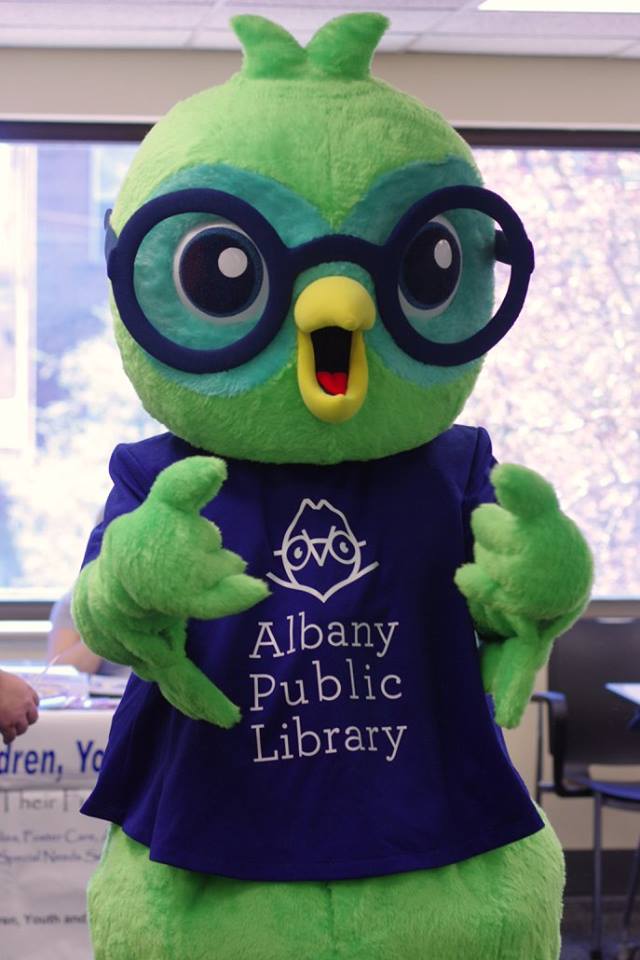We at FFAPL believe in digital inclusion and digital equity. When more people in the community have access to information available online, the community thrives. We use a lot of terms like digital inclusion and digital divide, and don’t always define them. Thankfully, the New York State Library put a “shared vocabulary” in their 2022 Digital Inclusion Toolkit. Here are some of the terms below, so we can get on the same page to #KeepAlbanyConnected!
VOCABULARY
Broadband Adoption
Broadband adoption has traditionally been defined as residential subscribership to high- speed internet access. But for those in the field working to increase the digital capacity of communities, broadband adoption is daily access to the internet:
- At speeds, quality, and capacity necessary to accomplish common tasks
- With the digital skills necessary to participate online
- On a personal device and secure convenient network
Digital Inclusion Ecosystem
A digital inclusion ecosystem is a combination of programs and policies that meet a geographic community’s unique and diverse needs. Coordinating entities work together in an ecosystem to address all aspects of the digital divide, including affordable broadband, devices, and skills.
Community-Wide Place-Based Digital Inclusion Coalition
A collective of organizations shaped by the community to advocate for digital equity and foster the growth of the community’s digital inclusion ecosystem through a formalized structure that publicly functions to facilitate the collaboration and coordination between community organizations that aim to support digital inclusion services.
Broadband Equity
A collective of organizations shaped by the community to advocate for digital equity and foster the growth of the community’s digital inclusion ecosystem through a formalized structure
that publicly functions to facilitate the collaboration and coordination between community organizations that aim to support digital inclusion services.
Digital Inclusion
Digital inclusion refers to the activities necessary to ensure that all individuals and communities, including the most disadvantaged, have access to and use of Information and Communication Technologies (ICTs). This includes five elements:
- Affordable, robust broadband internet service
- Internet-enabled devices that meet the needs of the user
- Access to digital skills training
- Quality technical support
- Applications and online content designed to enable and encourage self-sufficiency, participation, and collaboration
The elements of digital inclusion must evolve as technology advances. Digital inclusion requires intentional strategies and investments to reduce and eliminate historical, institutional, and structural barriers to access and use technology.
Digital Equity
A condition where all individuals and communities have the information technology capacity needed for full participation in our society, democracy, and economy. Digital Equity is necessary for civic and cultural participation, employment, lifelong learning, and access to essential services.
Digital Divide
The gap between those who have affordable access, skills, and support to effectively engage online and those who do not. As technology constantly evolves, the digital divide prevents equal participation and opportunity in all parts of life, disproportionately affecting people of color, Indigenous peoples, households with low incomes, people with disabilities, and older adults.
Digital Literacy
NDIA recommends the American Library Association’s definition of “digital literacy” via their Digital Literacy Taskforce: Digital literacy is the ability to use information and communication technologies to find, evaluate, create, and communicate information, requiring both cognitive and technical skills.
Digital Navigators
Digital navigators are trusted guides who assist community members in internet adoption and the use of computing devices. Digital navigation services include ongoing assistance with affordable internet access, device acquisition, technical skills, and application support.
To learn more about Digital Inclusion Week and APL’s Wifi Partnership, listen to Lex Bhagat’s conversation on Social Workers Radio.
#KeepAlbanyConnected



